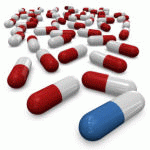Pharmacology
|
13 december 2018 13:00:03 |
| Marine Drugs, Vol. 16, Pages 501: A Strategy to Replace the Mouse Bioassay for Detecting and Identifying Lipophilic Marine Biotoxins by Combining the Neuro-2a Bioassay and LC-MS/MS Analysis (Marine Drugs) |
|
Tweet Marine biotoxins in fish and shellfish can cause several symptoms in consumers, such as diarrhea, amnesia, or even death by paralysis. Monitoring programs are in place for testing shellfish on a regular basis. In some countries testing is performed using the so-called mouse bioassay, an assay that faces ethical concerns not only because of animal distress, but also because it lacks specificity and results in high amounts of false positives. In Europe, for lipophilic marine biotoxins (LMBs), a chemical analytical method using LC-MS/MS was developed as an alternative and is now the reference method. However, safety is often questioned when relying solely on such a method, and as a result, the mouse bioassay might still be used. In this study the use of a cell-based assay for screening, i.e., the neuro-2a assay, in combination with the official LC-MS/MS method was investigated as a new alternative strategy for the detection and quantification of LMBs. To this end, samples that had been tested previously with the mouse bioassay were analyzed in the neuro-2a bioassay and the LC-MS/MS method. The neuro-2a bioassay was able to detect all LMBs at the regulatory levels and all samples that tested positive in the mouse bioassay were also suspect in the neuro-2a bioassay. In most cases, these samples contained toxin levels (yessotoxins) that explain the outcome of the bioassay but did not exceed the established maximum permitted levels. |
| 89 viewsCategory: Biochemistry, Molecular Biology, Pharmacology |
 Marine Drugs, Vol. 16, Pages 502: The Marine Dinoflagellate Alexandrium minutum Activates a Mitophagic Pathway in Human Lung Cancer Cells (Marine Drugs) Marine Drugs, Vol. 16, Pages 502: The Marine Dinoflagellate Alexandrium minutum Activates a Mitophagic Pathway in Human Lung Cancer Cells (Marine Drugs)Marine Drugs, Vol. 16, Pages 515: Reduced Number of Adipose Lineage and Endothelial Cells in Epididymal fat in Response to Omega-3 PUFA in Mice Fed High-Fat Diet (Marine Drugs) 
|
| blog comments powered by Disqus |
MyJournals.org
The latest issues of all your favorite science journals on one page
The latest issues of all your favorite science journals on one page



